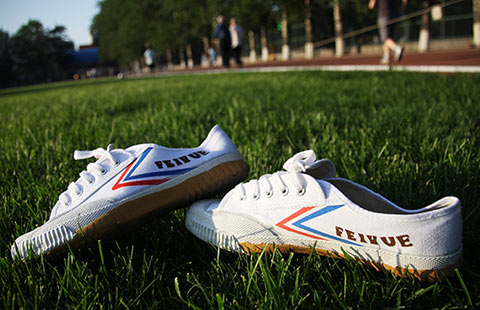Record bids for CCTV airtime
By Wei Tian (chinadaily.com.cn) Updated: 2012-11-19 11:28The annual advertising auction of China Central Television, a barometer of the country's economy, drew record bids on Sunday despite slowing economic growth, highlighting the strong business confidence in the consumer market next year.
The auction of airtime on China's only national television network drew bids totaling 15.8 billion yuan ($2.5 billion) for 2013, up 11.4 percent from the previous year. Jiannanchun, a famour liquor producer, was the top bidder with an expenditure of 608 million yuan.
The 12-hour auction kicked off with an auspicious start when Huiyuan Juice Group Ltd seized the exclusive naming right of Xingguang Dadao, one of China's most popular talent shows, at 340 million yuan.
But the record was soon broken, as liquor makers competed fiercely for advertising rights to the countdown to Xinwen Lianbo, the nation's most influential news program, on which Wuliangye Group Co lavished 499 billion yuan, a considerable increase on the 352 million yuan spent by last year's top bidder Kweichow Moutai Co.
Total spending on this slot amounted to 1.07 billion yuan, 62 percent higher than last year's bidding price of 656 billion yuan, and after a government call to limit the amount of airtime given to liquor-related TV ads.
Apart from the dominance of liquor makers, other notable bidders came from the food and beverage sectors, as well as e-commerce giants.
"The records bid today suggested that entrepreneurs are full of hope for the country's economy in 2013, it is also a positive answer to the economic rebound underway," said Li Guangdou, an advertising expert who is also a brand consultant to CCTV.
According to Li, CCTV's advertising revenue has been growing faster than the nation's GDP for the past 18 years since the auction started, at an average 16 to 17 percent annually, but the high growth faces increasing pressure this year.
In the first half of 2012, revenue in the domestic advertising market only grew 4.2 percent, and television advertising was up 4.7 percent. Both growth rates were slower than the economic expansion, which fell to a three-year low of 7.8 percent during the same period.
He Haiming, vice-director of CCTV's advertising operations and management center, said most companies have cut their advertising expenditure this year as their budgets were squeezed by the gloomy economic situation.
"As for CCTV, this has been the busiest year in my career of more than a decade, in terms of working overtime and visiting clients," He said.
Compared with the previous year's auction, this year has less advertising resources because of the absence of major sport events, and regulations to reduce advertising time during broadcasting, He said.
Meanwhile, national television faces increasing competition from local television channels, such as Zhejiang Satellite TV, which drew 1.04 billion yuan in advertising revenue for its hit show, Voice of China, for next year.
But Xu Fan, a professor with the Communication University of China, said CCTV's advertising slots would continue to be attractive for bidders because of its authority with viewer and high ratings during major holidays such as Spring Festival, regardless of program quality.
Xu's comment were echoed by He Yangqing, vice-president of Gome Electrical Appliances Holding, who said he would spend less on other media to guarantee advertising expenditure on CCTV for its high price-performance ratio. Gome has purchased more than 400 million yuan of advertising slots on CCTV for 2013.
Meanwhile, there is still room for growth as the aggregate spending on advertising only accounted for 0.6 percent of China's GDP, compared to an average 2 percent in developed countries, Li said.
The auction also came as the National Party Congress vowed to double the national income by 2020, "thus there is still huge potential in China's consumer market," CCTV's He said.
weitian@chinadaily.com.cn
- Chinese factories score a goal with Euro 2016
- Volkswagen to produce more electric cars in China
- China green-lights two highway projects
- IngDan helps pioneers crowdfund and sell products
- Chinese investment helps Hollywood produce for global audience
- China outbound M&A beats 2015 record with 6 months to spare
- Fosun-owned Club Med to open Hokkaido resort in 2017
- Dutch giant bullish on dairy in China


















